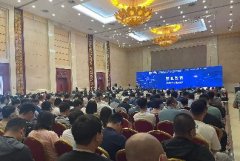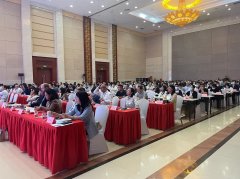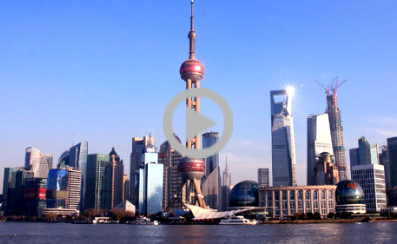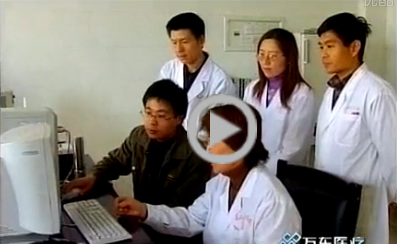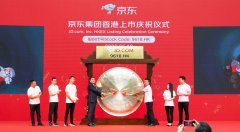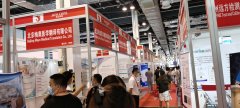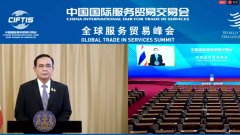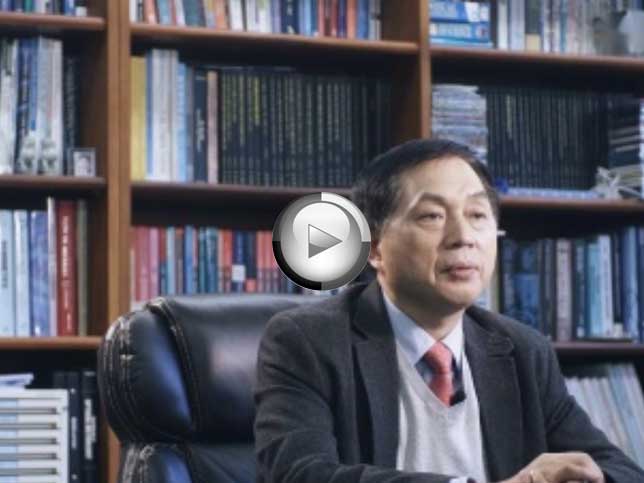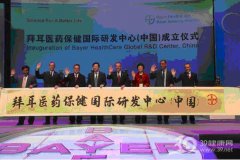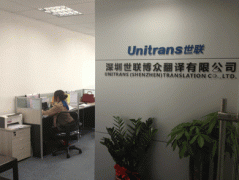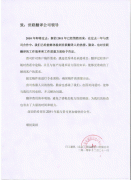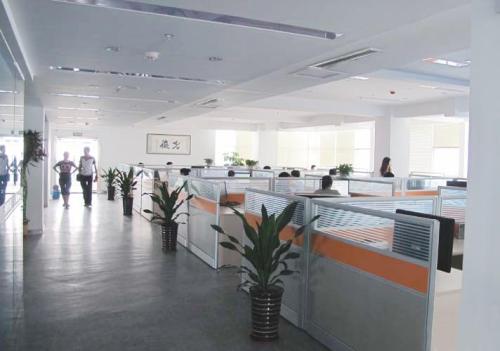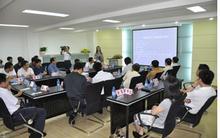上海翻译公司完成建议书英文翻译
时间:2018-04-03 08:41 来源:未知 作者:dl 点击:次
上海翻译公司完成建议书英文翻译
(I) Necessity for Making Heat Supply Industry Administrative Policies in China Establishment and improvement of heat supply regulatory system is the necessary conditions to guarantee urban heat supply and heat supply system reform. In recent years, local rules and regulations including heat supply administrative measures and heat supply administrative regulations have been promulgated successively in various regions of north China. However, no laws and regulations at the national level have been established. As a result, when making local laws and regulations, the law-makers lack of evidence from superior laws; in addition, different regions adopt different policies and measures for the key links of heat supply industry administration, which is not beneficial for the sound and orderly development of heat supply industry. (1) The Necessity to Promote the Sound Development of Heat Supply Industry The urban heat supply in China develops rapidly. Until 2011, the centralized heat supply area in China has reached 473.8 billion square meters. Table 1 National Centralized Heat Supply Statistic Table
Table 2 Statistic Table for Heat Supply Administrative Regulations and Measures in Provinces and Cities of north China
(2) The Necessity of Administration of Governments to Heat Supply Industry in accordance with the Law Heat supply has become the necessary conditions for the survival and development of urban and rural residents in north China, the basic guarantee for the normal operation of urban functions and the important component of urban infrastructure. The development of heat supply is closely related to urban energy supply, environmental pollution governance, as well as social stability and solidarity. Scientific and reasonable planning for the establishment and development of heat supply has the major significance to enhance the guarantee ability of heat supply, meet the living requirements of people, improve atmospheric environment and construct the harmonious society. Governments must play the leading role for the development of heat supply. (3) The Necessity of Operation of Heat Supply Enterprises in accordance with the Law Formulation of heat supply laws and regulations should maintain the legal interests of heat supply enterprises and users, standardize heat supply market, safeguard social public security, improve environmental quality and promote the development of heat supply undertakings. (II) Tasks and Functions of Policies On the basis of the legislations (regulations) at the national level, governments of provinces, autonomous regions and municipalities directly under the central government formulate the heat supply administrative measures and regulations within the administrative regions. Prefecture-level cities formulate the enforcement regulations and measures in accordance with the heat supply administrative measures and polices at national and provincial levels. The main functions are as follows: (1) Define the rights, responsibilities and obligations of governments, enterprises and users. Define the administrative authorities of governments and standardize the supervision behaviors of governments. (2) Establish market access and exit mechanism, maintain market competition order, make urban heat supply service quality standards, technical indicators and supervision method, and strengthen the supervision and guidance to service qualities of heat supply enterprises. (3) Through the primary legislation of the state, the national heat supply administrative regulations can be issued, to standardize the administrative content and methods of heat supply industry in China. It is quite necessary to establish consummate heat supply laws and regulations. The purpose of heat supply administration is to change the nature of heat supply industry from natural monopoly industry to competitive industry. With the following principles, effective and highly-efficient institutional framework can be established for the centralized heat supply industry under supervision. (1) The National Heat Supply Administrative Regulations and its implementation guidance or provisions can ensure the implementation as per the same principles and explanations on a national scale. The duties, industry targets and visions (including reforms) and principles of departments shall be defined in the national legal framework. (2) Under necessary conditions, try to avoid function overlapping as much as possible, to ensure the coordination of each department. If there are more than one department which implement the same function, these department shall coordinate effectively. (3) Each department shall implement the dedicated functions and duties with sufficient capacities. Each department shall have policies for duty implementation, with smooth information flow to supervision departments, local governments and central policies. (4) Compliance of Supervision and guarantee. Supervision mechanism shall be established, to provide convenience for fair supervision and law enforcement, and to provide convenience for discovery of something which needs to be adjusted and amended in the institutional framework, in order to achieve targets and visions in Regulation. (5) Local Duties. At present, the reform of heat supply in China relies on the local support and clear duty division. Local governments at all levels shall have the willingness to support the reform of overall target of the state, including the transfer of supervision methods of heat supply industry. II. Duty Distribution of Central and Local Governments in Heat Supply Administrative Policies(I) Duties of Central Administrative OrganizationHeat supply industry administration mechanism follows the principle of administration on a territorial basis of central and local governments. Urban heat supply, as the local issues, shall be administrated by governments at all levels. The state industry administration department conducts the macro management to heat supply industry, with the responsibilities to make main principles, rules and methods. For example, determine two-component heat price principle, technical standards, service quality and dispute settlement methods. The main duties are suggested as follows:
Each region shall make dedicated panning for urban heat supply development as per urban overall planning, to optimize urban heat supply structure, and actively integrate heat supply resources from the perspective of environmental protection, land saving and improvement of heat energy utilization efficiency.
Municipal-level heat supply administrative department, under the construction administrative departments of municipal governments, implement the administrative duties of heat supply industry in cities.
The duties of local government authorities are as follows: to implement urban heat supply socialization and commercialization, administrate local heat supply industry, control heat supply enterprises to supply heat with the lowest costs, reasonably obtain profits and solve social assistance problems.
III. Administrative Framework and Work Scope of Heat Supply Administrative Policies in China(I) Basic Framework供热体制模式基本框架 Basic Framework for Heat Supply System Mode 国家级管理机构确定:Determination of national-level administrative organization: 体制模式:由谁执行何种工作 System Mode: who shall implement which work 许可系统与市场准入/退出的规范与指导方针Standards and guidelines of permission system and market access/exit 区域供热合理定价原则及高效/正当成本费率 Regional heat supply reasonable price setting principal and high-efficient/justified costs and rates 汇报 report 汇报 report 省级机构 Provincial organizations 监测改革与目标 Monitor reforms and targets 城市间分享成功经验 share successful experience between cities 区域供热公司与市政府间的争议解决方式(不能在市级层面上解决) Dispute settlement methods between regional heat supply companies and municipal government (the disputes which fail to be solved at the municipal level) 省级基准 Provincial benchmark 区域供热改革中的城市经验 Urban experience in the regional heat supply reform 市级机构 Municipal organizations 地方法规,以执行国家级供热法规费率设定中的区域供热合理定价 Local regulations, to implement reasonable price setting of regional heat supply as per the rate setting in the national heat supply regulations. 规管许可以及许可/审准的管理 Regulation permission and administration of permission /examination and approval 规划 Planning 检测投资、服务品质与标准 Test investment; service quality and standards 许可Permission 数据/报告 data/report 包括:including: 服务品质 service qualities 费率数据归档 rate data filing 投资 investment 区域供热公司 Regional heat supply companies (II) Framework Functions This system mode framework determines who shall (which organizations) conduct work (duties) and how to implement (rules), defines the responsibility limits between national-level frameworks and organizations as well as local laws and regulations and organization, defines the functions of heat supply industry in regions and the organizations involved, and responsibilities(rights and obligations ) of organization (III) Framework Overview
The scope of national-level framework is as follows:
§ Data provision and report obligations of provincial-level and municipal-level administrative organizations
Main Duties:
§ energy efficiency standards
§ Collect information on implementation procedures of cities in a province, and report to provincial-level and national-level organizations. § Prepare and share lessons and successful cases; identify and notify difficulties and obstacles during the implementation.
IV. Organization Setting of Heat Supply Administrative Policies in ChinaThe organization setting of heat supply administration policies is divided into three-level administration including the national-level organization, provincial-level organizations and municipal-level organizations.The municipal construction competent authorities under Ministry of Housing and Urban-Rural Development are responsible for national-level administrative organization. At present, the national-level organization is Ministry of Housing and Urban-Rural Development,with the subordinate Department of Urban Construction. The main duties of Department of Urban Construction are as follows:
Suggestions: To meet the requirements of national heat supply industry administrations, the government organization setting of national-level heat supply administrative department is enhanced, which is mainly reflected in the flowing perspectives:
Suggested Main Responsibilities of Permission Group: Formulate national unified market access/exit permission rules and determine main guidelines and standard documents. Suggested Main Responsibilities of Operation and Supervision Group: Be responsible for collecting provincial-level heat supply information submission of competent authorities, monitor and supervise operational status of heat supply enterprises in provinces, be responsible for tricky heat supply disputes in provincial-level heat supply sections, and monitor the formulation and implementation of technical standards and service standards of heat supply in provinces. Suggested Main Responsibilities of Price and Cost Group: assist national price department to determine heat price setting principle, and take charge of heat supply cost collection and supervision in different regions in China. Suggested Main Responsibilities of Comprehensive Group: coordinate heat supply industry with other national administrative organizations and legal organizations, and take charge of daily administrative work of national-level heat supply industry. The administrative competent authorities for construction industry in a province or competent authorities for municipal industry are responsible for the provincial-level administrative organization. At present, municipal administrative departments and urban-rural construction departments are basically responsible for administration in provinces, autonomous regions and municipalities directly under the central government. Table 3 Summary Sheet of Provinces Cities Heat Supply Administrative Department in North China
(1)Work out urban construction and municipal public utility development plans and reform measures. (2) Guide urban water supply, water conservation, drainage, natural gas, heating power, municipal facilities, gardening, urban appearance and environmental hygiene. (3) Guide administrative law enforcement related to urban construction administration and urban construction administration. (4) Guide urban municipal public facilities construction, safety and emergent administration. ………… As required by the administration of heat supply industry of the state, the functions of provincial-level heat supply administrative department should be enhanced. Currently, the provincial-level heat supply administration is mainly concentrated in administrative construction competent authorities, usually the Urban Construction Office. This office is responsible for all the municipal industries relevant to urban constructions including water supply, drainage, natural gas, gardening and heat supply. Therefore, the heat supply administration is relatively weak. Suggestions: Separate provincial-level heat supply administrative department from the urban construction office, and establish a dedicated organization, which is directly under the provincial-level competent authorities for construction. Establish Technical Group, Supervision Group, Permission Group and Price and Cost Group under the organization, with the main duties as follows: Suggested Main Responsibilities of Technical Group: be responsible for the planning and approval of prefecture-level cities in a province, and the formulation of technical standards and service standards of heat supply industry. Suggested Main Responsibilities of Supervision Group: be responsible for the operation of heat supply industry, implementation and supervision of heat supply standards in a province, and treatment of heat supply disputes between heat supply enterprises and users in prefecture-level cities. Suggested Main Responsibilities of Permission Group: be responsible for formulating heat supply permissions, franchise regulations, standards and principles; through common procedures and common permissive conditions in a province,be responsible for permission issuance and franchise of large-scale heat supply enterprises( with the heat supply area more than 5 million square meters ) in a province. Suggested Main Responsibilities of Price and Cost Group: assist provincial-level price administrative department to monitor heat supply price in a province, supervise heat supply costs in different regions, examine heat supply subsidiary policies in different regions, and determine the average level of the entire province according to urban heat supply industry costs, profits and energy efficiencies and make benchmark. Municipal industry competent authorities are responsible for municipal-level administrative organizations. At present, these organizations are basically administrated by construction competent authorities and municipal industry administrative departments.
It is suggested that competent authorities of municipal-level heat supply can be composed of Planning and Construction Group, Operation Permission Group, Operation Supervision Group, Price and Cost Group and Comprehensive Coordination Group. Planning and Construction Group shall be responsible for compiling dedicated plans for heat supply, rules and measures, implementation rules and standardized documents in the city, and guiding and supervising the implementation and shall be responsible for working out industry administrative measures and organizing the implementation. Operation Permission Group shall be responsible for administration of industry franchise, and monitoring the market access and exit. Operation Supervision Group shall be responsible for safety production inspection of heat supply enterprises, qualification supervision and administration of urban heat supply enterprises, supervision and inspection of security administration and services of heat supply industry, and hearing and acceptance of complaints from citizens, petition and reception. Price and Cost Group shall be responsible for adjusting heat supply prices with relevant departments in the city, assisting the price department for cost supervision and examination, checking heat supply charge and heat supply subsidiary distribution. Comprehensive Coordination Group shall be responsible for the comprehensive coordination of heat supply industry administrative departments. V. Mandatory Provisions of National-level Legislation(I) Heat Supply Price Setting Standards in Different Regions(1) Heat Price System Reform At present, the heat supply costs are higher than the prices, and heat supply enterprises have severe loss. Impacted by the welfare heat supply system which has formed for a long term, heat supply price setting and adjustment have not been paid attention to. As the socialist market economy reform becomes deepened, on the one hand, governments gradually deregulate the upstream raw material prices; on the other hand, government price setting is used for heat supply prices. Since the price setting and adjustment system are not sound, price setting of heat supply prices in different regions are usually low and the prices are difficult to adjust, to lead to heat supply costs being higher than the prices and server loss of heat supply enterprises. In order to improve heat supply price setting and adjustment mechanism, urban heat supply implements governments price setting, with the principle of reasonable cost compensation, reasonable revenue determination and maintenance of customer benefits, to improve heat supply price formation mechanism, to explore the price system as per heat use volume and to gradually establish the “ two-component” price system. When the change rate of fuel (including coal) prices reaches to the becomes more than 10% within a year, the heating power production factor prices and heat supply sales prices should be adjusted correspondingly. In principle, government price setting or government guiding prices should be implemented for heat prices. The price setting should be conducted by price competent authorities of provincial (district or municipal) people’s government or authorized municipal or county people’s governments (hereinafter referred to as heat price-setting organizations). The price competent authorities shall be responsible for the heat price setting for authorized municipal or county people’s governments. Heat supply competent authorities shall assist the price competent authorities to administrate heat prices. (2) Heat Supply Price Setting Principle Heat supply prices in different regions shall be determined by local price departments in a unified and coordinated manner. With the principle of commodity and public welfare of heat and combined with local realities, the cost construction can be measured, and the proper heat price determination standards, heat price calculation formulas, heat fee calculation and charge methods and heat fee contribution methods can be defined. With the reasonable cost calculation, the growth of fuel, water and power prices and average wage of personnel, and consideration of comfortable room temperature and heat supply cost changes, the reasonable heat supply prices can be made. As per the provisions of the Interim Measures for the Price Control of Urban Heat Supply made by the National Development and Reform Commission and the Ministry of Construction in 2007, the heat supply price is composed of basic heat price and metering heat price; the basic heat price is determined as per the30%~60% of total heat price. The adjustment operation methods of heat supply prices are as follows: List the heat prices into local price administration catalogue, conduct heat supply cost supervision and examination, hold price hearings,submit new prices that have passed by the hearings to local governments for approval, and issue heat supply price adjustment documents after approval. (II) Heat Supply Permission Procedures and Standards in Different Regions Implementation of franchise and heat supply permission system is the important methods for local governments to establish heat supply market operation and monitoring systems, and is also important for formulation of the market access and exit for heat supply enterprises, determination of market planning of heat supply industry, creation of public and fair market competition environment and guarantee of legal rights and interests of suppliers and heat users. At present, recording system is implemented in Beijing and heat supply permission system is implemented in Tianjin. The provisions of Beijing City Heating Heat Supply Administrative Measures: “Article 10: Heat suppliers shall go the municipal administrative department for record keeping, with the following materials submitted: (1) company profile; (2) heat supply region and scale; users types and number; (3) basic information of heat supply facilities and the depreciation administration; (4) basic information of operation administration system and personnel; (5) contingency plans for heat supply emergencies. Heat suppliers shall guarantee the submitted recording materials should be authentic and precise. When the recording content is changed, the alteration procedures shall be conducted timely. Municipal administrative department shall show public notification to the society in terms of recording.” The provisions of The provisions of Heat Supply and Heat Use Regulation of Tianjin City: “Heat suppliers shall be with qualifications of a legal person or business licenses, and shall be allowed to operate heat supply after obtaining the heat supply permission certificates issued by the Municipal Heat Supply Office. 1. The heat suppliers in the administrative region of this city shall operate heat supply after obtaining the heat supply permission certificates issued by Tianjin City Heat Supply Office (herein after referred to as the Municipal Heat Supply Office).
The heat supply service contract shall include the following content: The basic agreed items of heating supply and heating define heat supply locations, charge areas, heat supply time, room temperature standards and contribution of heating fees; responsibilities of breach of contract and suspension of heat use; contract taking effect, contract alteration and dispute settlement. VI. Basic Framework for Regulation on the Heat Supply Administration in ChinaChapter 1 General ProvisionsProvisions shall be made to purpose of legislation, scope of application, duties of government competent authorities and relevant administrative departments, principle of urban heat supply administration and implemented system. Main Content: purpose of legislation, scope of application, setting and duty divisions of competent authorities as well as industry policies (I) “Purpose of legislation” clause suggests that “this regulation is made in accordance with relevant laws and regulations of the state, in order to develop heat supply undertakings, strengthen urban heat supply administration, safeguard heat supply security, standardize heat supply and heat use behaviors,and maintain legal rights and interests of heat users and heat suppliers.” (II) “Scope of application” clause suggests that “this regulation shall apply to companies and individuals of administration activities and heat use activities including urban heat supply development planning and emergency security as well as heat supply system construction, operation and running.” (III) “Setting and duty divisions of competent authorities” clause suggests that “people’s governments above county level shall strengthen the lead of heat supply, and put the heat supply work into the scope of national economy and social development planning. The construction competent authorities under the State Council shall be responsible for heat supply administration of the state. Other departments of the people’s governments above county level shall be responsible for relevant heat supply administration with their respective duty scope in accordance with this regulation and other provisions of relevant laws and regulations. Relevant departments of the people’s governments above county level shall establish and improve heat supply security supervision and administration mechanisms.” (IV) “Industry policies” clause suggests that “encourage and give priority to develop centralized heat supply and clean energy heat supply, promote heat supply control through families, and gradually achieve the metering charge as per heat use volume, and gradually promote the transformation of heat supply system energy conservation. People’s governments at all levels shall introduce competitive mechanism, encourage foreign-funded enterprises, private enterprises and individual investment to operate heat supply, and conduct heat supply franchise mechanism; encourage to conduct research and promotion, use building energy conservation technologies and advanced heat supply methods, technologies and equipment, to improve heat supply quality and service levels.” Chapter 2 Planning and Construction Provisions shall be made for urban heat supply planning and project constructions, with the main provisions including compiling and implementation of dedicated planning for heat supply, construction of heat supply facilities, responsibilities, rights and obligations of heat suppliers during the project construction implementation procedures, as well as qualifications of building companies , project qualities and acceptance administration. (I) Mandatory heat supply planning and limits of authority and procedures for examination and approval The clause suggests as follows: (1) The construction competent authorities under the State Council shall work with relevant departments under the State Council, to organize the compiling of national heat supply development planning outline and to organize implementation in accordance with national economic and social development planning, urban-rural planning and energy planning. (2) Local people’s governments above county level shall organize administrative competent authorities of heat supply and relevant departments to compile dedicated planning for heat supply, put it into the overall urban planning, report to the governments at the same level for approval and organize implementation, and report to the people’s governments at higher levels for heat supply administrative department recording. (3) The content of heat supply development planning mainly incudes: planning principle, energy source types, heat supply methods, layout of facilities, construction sequences and heat supply safeguard measures. (4) The newly-built, rebuilt and expanded heat supply projects shall be in line with the dedicated planning for heat supply. (II) Heat supply facilities construction The clause suggests as follows: (1) The heat supply facilities of newly-built residences shall meet the existing temperature requirements of residence design standards of the state, and shall be constructed as per family splitting metering. If the existing residences fail to meet the existing temperature requirements of residence design standards of the state, the building energy conservation transformation and heat supply system transformation shall be gradually conducted, and heat supply metering charge shall be gradually implemented as per plans; Heat suppliers and heat users should coordinate with the work. (2) The construction of heat supply facilities in newly-built houses shall be undertaken by companies with the corresponding qualifications, and shall meet relevant state and local technology standards and regulations. During the construction of heat supply facilities, the equipment, tubing and appliances shall be in line with the state standards, industry standards and local standards. Relevant departments are not allowed to use special products. (3) After the construction of heat supply facilities is completed, building companies shall organize heat suppliers to conduct acceptance as per relevant state and local provisions and standardize, and provide the file data of relevant heat supply projects. The projects which fail to go through acceptance procedures or fail to be accepted shall not be delivered for use. (III) Determination of limits of authority for administration of heat supply facilities The clause suggests as follows: If the newly-built, rebuilt, expanded and supplemented dedicated heat supply projects and other construction projects involves in heat supply projects, the heat supply projects shall meet the requirements of the dedicated planning for heat supply. When municipal, district and county construction project examination and approval departments examine the projects, they shall consult opinions from Urban Heat Supply Office in written form. When planning and administration department comes up with planning conditions for construction projects, it shall consult opinions from municipal administration if it involves in construction of heat source facilities. Chapter 3 Energy Conservation and Metering Administration The provisions are for energy conservation and emission reduction as well as implementation of metering administration of heat suppliers, with the main provisions of the implementation of energy conservation monitoring mechanism by heat supply competent authorities, responsibilities of energy conservation and emission reduction as well as implementation of heat supply metering administration by heat suppliers, and provisions of energy conservation transformation of newly-built and existing buildings (indoor metering facilities and temperature regulation and control facilities must be installed), in order to charge as per heat use volume. Main Content: (I) Energy conservation assessment: topic of responsibilities, assessment content, assessment measures and evaluation standards (II)Energy consumption statistics and audit: provisions of heat supply energy consumption statistics mechanism, and audit responsibilities, targets, procedures, scopes, methods and result treatment (III) Metering charge: topic of charge responsibilities, associated responsible companies, newly-built and existing residential buildings transformed for energy conservation, and implementation of charge mechanism as per heat use volume. The clause suggests as follows: The heat gauges used for heat fee settlement shall be compulsively calibrated before installation and use. These gauges can be installed and used after the calibrations are qualified. If heat suppliers and heat users have disputes on the precision of heat gauges, the quality technology supervision department shall conduct calibration, with the calibration fees undertaken by the responsible party. The specific measures of installation, maintain, administration and update of heat gauges shall be made by competent authorities of urban heat supply. Heat users are not allowed to install, dismantle, change or damage heat supply metering facilities or interfere the normal metering of heat metering facilities without permission. Chapter 4 Heat Supply and Heat Use Administration The administrative provisions are for heat supplier operations and use links of heat users, with the main provisions of permitted conditions of heat supplier operations and supervision forms of governments, responsibilities, obligations and forbidden behaviors of heat suppliers, and responsibilities, obligations and forbidden behaviors of heat users. Main Content: (I) operation permission mechanism: operation permission evidence, administrative department duties, permission condition application, access/exit procedures and daily administration mechanism The clause suggests as follows: Heat suppliers shall have qualifications of a legal person or business licenses, and shall operate heat supply after obtaining heat supply licenses issued by local heat supply administrative department. The following conditions shall be met for obtaining heat supply licenses: (1)With heat supply facilities in line with heat supply requirements (2)With capital matched with heat supply scale (3)With corresponding operation administration mechanism (4) With qualified employees The Heat Supply Licenses shall be examined and issued as per levels. If the heat supply area reaches 500,000 square meters or above, the provincial construction competent authorities shall be responsible for examination and issuance. If the heat supply area is less than 500,000 square meters, the municipal and county heat supply competent authorities shall be responsible for examination and issuance. The specific measures for examination and issuance of Heat Supply Licenses as per different levels shall be made by provincial construction competent authorities. The heat suppliers which obtain Heat Supply Licenses issued by provincial construction competent authorities shall register in municipal or county heat supply competent authorities. Municipal or county heat supply competent authorities shall submit relevant information of local heat suppliers to provincial construction competent authorities periodically. Heat Supply Licenses shall be produced under the supervision of provincial construction competent authorities. Heat suppliers shall supply heat as per the scope of heat supply license provisions, and shall not transfer heat supply licenses. Heat suppliers shall perform the following obligations: (1)Observe relevant provisions of the state, the province and local dedicated planning for heat supply, operate in accordance with law, assume sole responsibilities for profits or losses, and undertake corresponding operational risks and legal responsibilities (2)Scientifically and reasonably make annual production and supply plans of heat suppliers (3) Organize security production as per security production laws and regulations of the state and industry security production standards (4) Provide qualified products and service for users (5) Accept the supervision and inspection of heat supply competent authorities on heat supply products and service qualities (6)Pay relevant taxes and fees in accordance with law (7) Conduct administration, maintenance and overhaul to heat supply facilities as per provisions of this regulation, to ensure the facilities are in good conditions and secure (8) Other obligations of people’s governments specified in accordance with law Heat supply competent authorities shall perform the following duties: (1) Supervise heat suppliers perform legal obligations and agreed obligations (2)Supervise heat suppliers’ implementation of operation plans, qualities of products and services and security production (3) Accept and hear the complaints of users to heat suppliers (4) Organize qualified heat suppliers to temporarily take over heat supply operation projects under the emergent circumstances which imperil or may imperil pubic interests or public securities (5)Establish integrity assessment files for heat suppliers, conduct inspection and assessment to heat suppliers with the methods of tour inspection and random inspection, record assessment results, and announce to the society before the start of heat supply period annually. If a heat supplier plans to stop heat supply, it shall apply for heat supply market exit to local heat supply competent authorities 120 days before the start of heat supply period, and it can only stop heat supply operation with the agreement of local people’s government. Local heat supply competent authorities shall decide whether to approve or not within 30 days. If the competent authorities fail to make decisions beyond such period, it is deemed that the competent authorities agree such application. If a heat supplier conducts one of the following behaviors, the competent authorities shall instruct it for correction. If the heat supplier fails to conduct correction, its Heat Supply License shall be revoked in accordance with law. (1)Transfer or lease heat supply operation project without authorization (2) Sell main heat supply facilities under running without authorization (3)Stop business, close business or give up administration without authorization (4) Postpone heat supply, stop heat supply in advance or stop heat supply in the midway in heat supply regions without authorization (5) Assign, transfer and take over heat supply facilities and heat supply regions without authorization (6) Fail to perform obligations of maintenance and updgated transformation of heat supply facilities (7)Incomplete environmental protection approval procedures or heat supply facilities failing to meet the standards of environmental protection (8)Boilers fail to meet energy conservation or security technology standards or continue to use boilers when they have already been discarded as useless (9)Heat supply qualities fail to meet the standards in this regulation (10) Fail to pay heat supply quality deposit as per provisions (11) Heat Supply Licenses fail to go through the procedures of annual inspection, or fail to pass the annual inspection (12) Other operational activities that should be stooped in accordance with laws and regulations If a heat supplier stops business, closes business, gives up administration without authorization or the Heat Supply License is revoked in accordance with law, the local people’s government shall organize other heat suppliers to take over temporarily. If a heat supplier stops business, closes business or gives up administration without authorization, and causes losses to others, the heat supplier shall make compensation. The assets of the heat supplier which gives up administration shall be treated by local people’s government in accordance with law. (II)Running administration: rules and regulations, security administration and employment with certificates The clause suggests as follows: Heat suppliers shall make operational procedures and mechanism of heat supply running, maintenance and overhaul of facilities and accident treatment, and establish and improve heat supply security system, to guarantee the security running of heat supply system. The heat supply facilities of heat suppliers shall not run in an overload manner. (III) Heat supply date: prescribed heat supply period The clause suggests as follows: Heat suppliers supply heat as per the heat supply period prescribed by local people’s government. If the heat supply is postponed or terminated in advance for some reasons, the heat fees of these days shall be returned to heat users. If the temperatures are exceptionally low, the municipal people’s government can decide to supply heat in advance and postpone stop of heat supply. Heat suppliers shall implement the decisions of municipal people’s government. (IV) Room temperature of heat supply: prescribed heat supply room temperature standards and temperature measure methods The clause suggests as follows: During the heating period, heat suppliers shall guarantee the room temperatures of bedrooms and living rooms of residence users can meet the temperature requirements of the residence design standards of the state if such residences can meet the requirements of the residence design standards of the state, except the normal heating operations impacted by emergencies or users’ responsibilities. If users have special requirements to heating temperatures during heating period, users may reach separate agreements with heat suppliers. (V) Service standards: provisions of service and quality standard principle The clause suggests as follows: Heat suppliers shall, in accordance with relevant standards and regulations of the state and the city, provide secure, stable and qualified heat supply services for users, establish and improve heat supply operation administration mechanism, service standards and secure operation procedures, and observe the following provisions: (1)Establish tour inspection mechanism for heat supply facilities, inspect heat supply facilities within the administration scope and make records. If the hidden dangers of shared heat supply facilities are found, these dangers shall be eliminated. If hidden dangers of users’ heating facilities are found, written notices shall be sent to users to tell them for timely elimination. (2) Before heat supply, water filling, pressure testing, venting and commissioning shall be carried out, and shall be announced within the heat supply region in advance. (3) Establish user heating temperature random measure mechanism, and periodically measure user room temperatures; temperature measure records shall be signed by users or other certifiers. (4) During the heating period, 24-hour services shall be conducted, and the problems of users shall be timely treated and replied. (VI) Trouble Treatment: trouble degree judgment and treatment methods The clause suggests as follows: If a heat supplier needs to suspend heat supply due to equipment failures, it shall report to Heat Supply Office, timely notify heat users and adopt remedy measures. If heat supply is stopped successively for 24 hours due to the heat supplier, the heat supplier shall refund the heating supply and heating fees as per day. Heat suppliers shall periodically inspect and repair heat supply facilities, to ensure the secure running of heat supply. Heat suppliers shall (VII) Users loss compensation: provisions of compensation standards and compensation measures The clause suggests as follows: If the heat supply will be stopped for more than 8 hours (including 8 hours), heat supply enterprises shall announce to heat users 24 hours in advance. If heat supply enterprises fail to supply heat as per prescribed or agreed heat supply period, fail to prescribed or agreed heat supply temperatures, heat users have the right to require heat supply enterprises to refund heating fees. If heat supply enterprises cause loss to heat users, compensation shall be made, except the failure of heat supply due to force majeure. The refund of heating fees shall be calculated as per temperature differences and accumulated time based on charge standards. The specific calculation measures shall be determined by the local government. (VIII) Dispute settlement: dispute settlement principle and settlement procedures: meditations and litigations The clause suggests as follows: (IX) Contracts between heat supplier and users: provisions of contract signing procedures and contract content between heat suppliers and users The clause suggests as follows: Heat suppliers and heat users shall enter into heat use contracts in accordance with law. The contract test shall use the test joined issued by provincial construction competent authorities and provincial industrial and commercial administrative department. If heat users change, heat users shall conduct heat supply and use contract change procedures with heat suppliers. If heat users do not sign heat supply and use contracts with heat suppliers, and fail to apply for heat use stop application within the prescribed time, heat users shall pay heating supply and heating fees. Application of heat use and stop: provisions of users’ application of heat use and stop, with the key provisions of fixed fee charge principle to users who have stopped heat use. Heat users shall pay heat fee as per this regulation provisions and heat supply and use contracts. If heat users fail to pay heat fees 30 days beyond the prescribed period, and the heat users fail to pay such fees after reminding within the reasonable period, heat suppliers shall postpone, limit or stop heat supply for such users, without damaging heat use rights of other heat users. If heat users need to stop or recover heat use, heat users shall apply for heat suppliers 30 days before the heat use stop or recover, and conduct relevant procedures. The stop period of heat use shall be agreed by heat suppliers and heat users. After the heat use is stopped, heat users shall not recover heat use without authorization within the agreed period. The heat users who stop heat use shall pay basic heat fees to heat suppliers, with the value equal to a certain percentage of total heat fees. The specific standards shall be made by people’s government above county levels. Heat users shall not stop heat use with one of the following situations: (1)During the first heating period after the new buildings are put into use (2)Do harm to secure running of shared facilities or impact normal heat use of neighbored heat users. If heat users change names, they should go to the heat suppliers to conduct heat supply and use change procedures. Chapter 5 Charge and Subsidy Administration Provisions shall be made for responsibilities of heat fee payment principals, construction fee administration, heating subsidy distribution, arrears of users, heat supply stop, heat metering two-component heat prices, heat and coal price linkage as well as heat and power cost sharing proportion principle. The clause suggests as follows: Municipal and county heat supply competent authorities can determine the social average cost and fee standards for combined heat and power generation, regional boilers, scattered boiler heat supply, and assist relevant departments to calculate and monitor the costs of heat suppliers and come up with price adjustment opinions. Heat prices shall be calculated by municipal and county price competent authorities, together with heat supply competent authorities, and shall be announced and implemented after submitting to the local people’s governments for approval. The prices shall also be reported to provincial price competent authorities and provincial construction competent authorities for recording. The heat prices for combined heat and power generation, regional boilers, scattered boiler heat supply and energy conservation buildings can be set respectively as per the principle of high quality and high price. For the adjustment of sales prices of heating power, urban and county price competent authorities shall perform cost supervision and examination, announce the components of heat fees and prices, and organize price setting hearing to widely collect opinions from all walks of life. Heat metering charge shall be promoted for the users with heat supply metering devices and room temperature adjustment devices installed. The users who are not implemented heat metering charge shall be charged as per areas, with the specific measures determined by municipal and county people’s governments. For the users with heat metering charge, heat fees shall be calculated as per two components, i.e. basic heat price and metering heat price, with the specific standards determined by municipal and county people’s governments based on the provisions of the state. For the users with heat metering charge, the users shall pay heat fee in full in advance as per areas to heat suppliers before Dec. 31 each year. After the heat supply period is ended, the heat fees shall be settled as per actual metering, with refund for any over payment or supplemental payment for any deficiency. For the users without heat metering charge, the users shall pay no less than 50% of heat fees to heat suppliers before the heat supply period, and the remained heat fees shall be paid to heat suppliers before Dec. 31 each year. The refund of heat fees should be returned to users within one month after the end of heat supply period. Building companies shall pay heat fees of newly-built houses before the houses are delivered to house purchasers for use. The heat fees of the rental houses shall be paid by the house owners. If someone rents public-owned houses, the leasee shall pay heat fees. If users fail to pay heat fees beyond the prescribed period, heat suppliers can send nonfictions to users for requiring the payment. If users fail to pay within 15 days after receiving the notifications, heat suppliers shall limit the heat use or stop heat supply without damaging rights and interests of other users, and shall record to heat supply competent authorities. If users refuse to pay heat fees, penalty shall be paid in accordance with the contract. Heat suppliers can institute legal proceedings to people’s court. If heat suppliers fail to show users Heat Supply License in public, users can refuse to pay heat fees and report to heat supply competent authorities. The price of water used for resident heat supply shall be settled as per resident domestic water price. Municipal and county people’s governments shall establish and improve heat supply guarantee mechanism, to guarantee the heat use of users with urban subsistence allowances and other groups of special difficulties. Municipal and county people’s governments shall establish heat supply risk prevention mechanism and heat supply emergency mechanism, to prevent heat supply risks and guarantee heat supply security. Chapter 6 Heat Supply Facility Security and Emergencies Treatment Provisions shall be made for security protection of heat supply facilities of building companies, construction companies and heat users as well as refusal of heat supply and abandon of administration of heat suppliers. Provisions shall also be made for promulgation and start of contingency plans and the coordinated obligations of relevant companies. Main Content:
Heat suppliers shall be responsible for the maintenance and administration of outdoor heat supply facilities and indoor shared heat supply facilities; heat users shall be responsible for indoor heat supply facilities, and if these facilities need to be updated and changed, the heat users shall undertake the fees of replacement of heat supply facilities. The heat supply facilities administration responsibilities of non-residence heat users shall be agreed in the contracts between the heat suppliers and the heat users. Building companies shall take warranty responsibilities in two heating periods for heat supply facilities of newly-built houses. If these companies fail to perform or postpone performing the warranty responsibilities, the warranty periods of heat supply facilities shall be postponed correspondingly. After the termination of the warranty periods, the heat suppliers shall be responsible for heat supply facilities。 Heat suppliers shall periodically inspect, maintain, update and change the heat supply facilities the run and administrate in accordance with relevant laws, regulations, rules, and technology standards and specifications, to ensure that these equipment are in good conditions during the use period. Heat suppliers shall withdraw depreciation costs of heat supply facilities as per relevant provisions of the state and the city. Heat suppliers shall strengthen the administration of energy conservation and emission reduction of heat supply facilities, implement system energy conservation change, and reduce pollutant emission and energy consumption. Relevant administrative department shall conduct assessment to heat suppliers periodically. After heat supply facilities have emergent faults, the heat suppliers shall immediately conduct urgent repair. For other facilities which have impact on urgent repair, heat suppliers shall adopt reasonable emergent treatment and necessary onsite preventions measures, and timely notify relevant companies. Public Security Bureau and relevant municipal departments shall coordinate. If the faults including water leak of heat supply facilities within the residences of heat users have severe impact on public security and interests of other residents, heat suppliers shall adopt emergent measures immediately and timely notify relevant heat users. If the urgent repair needs to be conducted within the residences and heat users fail to rush to the site timely, heat suppliers shall notify Public Security Bureau, subdistrict office and property service enterprise to coordinate the indoor urgent repair. If the workers of heat suppliers cause property loss of heat users during the urgent repair on purpose or due to major mistakes, heat suppliers shall undertake corresponding compensation responsibilities; If the loss is caused due to heat users, heat users shall undertake responsibilities. If the construction is conducted within the protection scope of shared heat supply facilities, the construction companies shall decide protection measures through consultation with heat suppliers. If heat supply facilities are damaged during the construction, a company shall timely notify heat suppliers to repair, undertake repair fees, and compensate corresponding loss; if a company causes loss to relevant companies and individuals, a company shall undertake civil responsibilities. Within the protection scope of shared heat supply facilities, any company and individual shall not engage in the following activities which harm the security of shared heat supply facilities: (1) Construct constructions and structures or pile up materials (2) Pave line pipes and hang things by using heat supply pipes and supports (3) Discharge corrosive liquid (4) Drop anchors in the area that heat supply pipes cross rivers or conduct other operations that harm the secure of heat supply pipes (5)Blast operations (6) Other activates that destroy or damage heat supply pipes and their affiliated facilities The heat gauges which are used for heat fee settlement shall be calibrated compulsorily before installation and use. They can only be installed and used after they are qualified for installation. If heat suppliers and heat users have disputes on the precision of heat gauges, the quality technology supervision department shall be responsible for calibration, and the calibration fee should be undertaken by the responsible party. The specific measures for installation, maintenance, administration and update of heat gauges shall be made by municipal heat supply competent authorities. Heat users shall not install, dismantle, change or damage heat supply metering facilities or interfere the normal metering of heat metering equipment without permission. If heat supply facilities need to be rebuilt, dismantled or moved due to project construction, building companies shall apply for urban, district or county heat supply office, and the implementation shall be conducted after approval. The heat supply administrative competent authorities of the people’s governments above county level shall make and organize implementation the contingency plans for heat supply troubles in the administrative regions. If the heat supply troubles cause casualties or property loss, the survey and treatment should be conducted as per relevant regulations of the state. Heat suppliers shall make dedicated contingency plans for heat supply troubles, announce maintenance, urgent repair and heat supply service telephone numbers, and carry out the mechanism of being on duty for 24 hours. If heat suppliers find heat supply troubles or receive heat supply trouble reports, they shall urge to the site to organize urgent repair, and timely report to relevant departments as per provisions Municipal, district and county administrative departments shall organize implementation of contingency plans for heat supply emergencies as per relevant provisions of the state and the city. Municipal, district and county people’s governments shall set dedicated capital for respond to heat supply emergencies, to guarantee the fees needed for the work to heat supply emergencies. Heat suppliers shall establish and guarantee the emergent repair team for heat supply security, and allocate emergent repair equipment, goods and materials, vehicles and communication equipment, for 24-hour emergent preparation during the heating period. If heat supply facilities have emergent faults, urgent repair should be conducted. Heat suppliers can adopt necessary emergency measures for urgent repair, and relevant companies and users shall coordinate. If emergent leak of heat supply facilities occurs, heat suppliers shall adopt urgent danger prevention measures, implement indoor urgent repair operations, and local Public Security Bureau shall coordinate. If heat suppliers fail to guarantee secure and stable heat supply and severely impact public interests and the failures still occur after the coordination, supervision and urge by municipal administrative departments, municipal, district or administrative departments can entrust qualified heat suppliers to conduct emergent takeover of the heat supply facilities of such heat suppliers after approval of municipal, district or county people’s governments. If the emergency takeover is implemented for heat supply facilities of heat suppliers, the statement and defend of the companies which are taken over shall be listened, and the announcements shall be made within the scope of heat supply. Local Public Security Bureau, town people’s governments or subdistrict offices, and property service enterprises shall coordinate. During the operation period of the takeover, the takeover companies shall provide secure and stable heat supply services to users, and keep separate accounts for the income and expenses of the taken-over project, with independent accounting and accept supervision from relevant departments. In order to guarantee the running fees generated by the basic heat supply services, the takeover companies shall pay for others and expect to be repaid by the taken-over companies later. The net loss of capital of takeover companies due to the temporary pay for others shall be subsidize by financial departments of the city and district after the approval of municipal people’s government, with the specific methods made by the financial and administrative departments of the city . Municipal administrative department shall establish and improve supervision and administration mechanism, and conduct supervision and inspection for heat suppliers in accordance with law. Municipal administrative department shall work with municipal standardization competent authorities to organize the formulation of standards relevant to public security and services of heat supply. Chapter 7 Penalty Provisions Provisions shall be made for the legal responsibilities due to violation of prescribed behaviors. The clause suggests as follows: If building companies violate the provisions of this regulation, the Urban Heat Supply Office shall give penalty as per the following provisions: (1)If a building company violates the dedicated planning for heat supply and builds a heat source plant without authorization, the construction shall be instructed to stop. If such company fails to correct beyond the prescribed period, the plant shall be dismantled, and the company shall be fined between 100,000 yuan and 200,000 yuan. (2) If a building company violates the dedicated planning for heat supply and combine into heat supply pipe network without authorization, the construction shall be instructed to stop and the relevant procedures shall be conducted. If such company fails to correct beyond the prescribed period, the company shall be fined with the standard of fining 10 yuan per square meters based on charged area. If heat suppliers violate the provisions of this regulation to fail to obtain heat supply licenses, exceed the business scope of the permitted scope or assign heat supply licenses, the Urban Heat Supply Office shall construct it to correct within the limited period, and confiscate the illegal revenue. If the heat suppliers fail to correct beyond the prescribed period, the fine shall be conducted of 5 yuan per square meters based on the heat supply area. If heat suppliers violate the provisions of this regulation and have one of the following behaviors, the municipal, district and county Heat Supply Office shall construct the suppliers to correct. If the suppliers fail to correct beyond the prescribed period, the suppliers shall be fined between 30,000 yuan and 100,000 yuan. If the suppliers cause loss to heat users, the suppliers shall compensate the heat users in accordance with law. If the cases are severe, the Urban Heat Supply Office shall revoke the heat supply licenses: (1)Heat supply which violates the provisions of heat supply period; (2) Rebuild, dismantle and move heat supply facilities without authorization; (3) Refuse to supply heat with the heat supply capacities as per the dedicated planning for heat supply; (4)Impact the production and life of heat users due to stop of heat supply without authorization, heat supply which violates provisions or failure of urgent repair; (5) Fail to implement metering charge in accordance with the provisions of heat supply metering If heat users violate the provisions of this regulation and have one of the following behaviors, the district and county Heat Supply Office shall construct the heat users to correct. If the heat users fail to correct beyond the prescribed period, the fine shall be between 500 yuan and 3000 yuan; if the heat users cause loss to other heat users, compensation shall be made in accordance with law. (1)Dismantle and change heat supply facilities to impact the normal heat use of other heat users; (2)Interfere the normal metering of heat metering devices; (3)Discharge and take hot water in the heat supply pipes If companies and individuals violate the provisions of Article 36 of this regulation, and engage in the activities that harm the security of shared heat supply facilities, the district and county Heat Supply Office shall construct them to correct. If they fail to correct beyond the prescribed period, the fine shall be between 2000 yuan and 10,000 yuan; if the cases are severe, the fine shall be between 30,000 yuan and 100,000 yuan; if they cause loss to others, compensation shall be made in accordance with law. If working personnel of heat supply administrative competent authorities, heat supply office and other relevant administrative departments misuse authorities, neglect their duties and play favouritism and commit irregularities during heat supply and heat use administration, their companies or superior competent authorities shall give them disciplinary sanctions; if they constitute crimes, their criminal responsibilities shall be investigated. Chapter 8 Supplementary Provisions Explanations to terms and provisions of implementation dates Appendix 1: Heating Supply and Heating Contract for Beijing City Residents Contract Number: Heating Supply and Heating Contract for Beijing City Residents (Version of Charging as per Area) Heat User: Heat Supplier: Beijing Municipal Commission of City Administration and Environment Beijing Administration for Industry and Commerce June of 2010 Instructions for Use 1. This contract shall be model text. Jointly made by Beijing Municipal Commission of City Administration and Environment and Beijing Administration for Industry and Commerce, this contract shall be applicable to operational heating supply and heating transactions between heat suppliers and resident heat users within the administrative region of this city. 2. Before signing this contract, heat users shall submit to heat suppliers copies of their identification papers, house ownership certificates or lease certificates for public-owned houses; heat suppliers shall represent business licenses with official seals or copies of institute legal person registration certificates and copies of recording registration certificates of heat suppliers. 3. Except the heating fee payment standards, the horizontal lines in other provisions of this contract shall be the specific content that can be consulted and agreed between both parties as per actual situations. For something which does not happen actually or fails to be agreed by agreed by both parties, × shall be marked on the horizontal lines to delete. Options are after □, and the selections shall be made by marking √. 4. Both parties shall reach an agreement on the number of originals of this contract, and check it when signing this contract, to ensure the consistency of the content of every contract. 5. Explanations of relevant terms: (1)Heat user: house property owners or leasees of public-owned houses with the rent paid as per the prescribed government standards. (2)Heat supplier: The heat supply operation companies which are recorded and registered in municipal, district and county heat supply competent authorities, with recording registration certificates obtained. (3)Normal Weather: In accordance with provisions of “Outdoor Climate Parameters” of the Code for Design of Heating, Ventilation and Air Conditioning (GBJ19-87, 2001Version ), the restricted outdoor daily average temperature shall be above -9℃ in the heating supply and heating system design of the buildings in this city. Normal weather under this contract refers to the outdoor daily average temperature shall be above -9℃. The outdoor daily average temperatures are subject to the data issued by 以professional meteorological department of the city. (4)Existing Design Code for Residential Buildings of the State: Design Code for Residential Buildings (GB50096-1999, 2003Version) (5)Indoor heating facilities: indoor branch pipes, radiators (including buried pipes) and accessory equipment. (6)Bedroom: the space for inhabitants to sleep and rest (Design Code for Residential Buildings, GB50096-1999, 2003 Version) (7)Living room: the space for inhabitants to receive guests, entertain and gather (Design Code for Residential Buildings, GB50096-1999, 2003 Version) (8) Number of days without heat supply: number of days that heat suppliers fail to comply with the periods under the contract to postpone or terminate heat supply in advance, and number of days that heat suppliers stop heat supply during heating period. If the number of days is less than one day, it shall be calculated as one day. (9) Maintenance: Daily maintenance and repair to heating supply and heating system, to avoid the damages, keep the normal status, and extend the service life (Administration Code for Heating Supply and Heating System Repair, DB11/T466-2007) (10) Inspection and Repair: Carefully check the heat supply system, to find out problems and adopt measures to recover the functions of damaged equipment, hereinafter referred to as overhaul (Administration Code for Heating Supply and Heating System Repair , DB11/T466-2007) The maintenance, inspection and repair for heating supply and heating system is called repair for hort. (11) Emergent contact: If heat suppliers need to conduct indoor repair, urgent repair or adopt emergent risk prevention of heating supply and heating facilities, and heat users fail to be on site timely or the heat users cannot be contacted with the contact ways, heat contacts who are designated by heat users shall help the heat supplier for indoor operations. Heating Supply and Heating Contract for Beijing City Residents (Version of Charging as per Area) Heat User(Party A): Heat Supplier(Party B): Party A and Party B have entered into this contract through consultation, on the basis of voluntarity, equality, fairness and integrity, in accordance with the provisions of laws, regulations and rules including Contract Law of the People's Republic of China, Law of the People’s Republic of China on the Protection of Consumer Rights and Interests and Heating Supply and Heating Administrative Measures of Beijing City (hereinafter referred to as Measures) Article 1 Heating supply and heating locations and heating charging area 1. Heat supply facilities locations: heating locations: Residence building energy conservation status: □Energy conservation buildings which comply with the existing Design Code for Residential Buildings of the state □Buildings with building envelope transformation and heat supply system transformation □ Buildings without building envelope transformation or heat supply system transformation 2. Heating charging area: square meters, the floor area of the single-storey buildings higher than 4 meters is square meters: (1) The recorded floor area of the house ownership certificate or public-owned house lease certificate is square meters; The floor area of a house without house ownership certificate is subject to the floor area of the floor area in the as-built drawing of the building or the floor area in the house sale contract, which shall be recorded as square meters. After Party A obtain house ownership certificate, the floor area is subject to the floor area recorded in the house ownership certificate. If there are only usable areas in house ownership certificates and public-owned houses lease certificates, the usable areas shall be converted as floor area for calculation and charging of heating fees according the prescribed coefficient of the house administrative department. (2) Other floor area of heating is square meters. If there are disputes for the area of this part of buildings, the surveying and mapping data issued by house surveying and mapping department entrusted by Party B shall prevail, with the surveying and mapping fees undertaken by Party B. Article 2 Heating period The heating period shall be from Nov. 15 to Mar. 15 the next year annually. The adjustment of heating period shall be implemented by the decision of Beijing Municipal People’s Government. Article 3 Heat supply room temperature standards During the heating period and under normal weather, residences in line with the requirements of the existing Design Code for Residential Buildings of the state, in terms of residences with building envelope transformation and heat supply system transformation, Party B shall guarantee that the temperatures of Party A’s bedrooms and living rooms shall be no less than 18℃; in terms of residences without building envelope transformation and heat supply system transformation, the temperatures of bedrooms and living rooms shall be no less than 18℃ if the outdoor daily average temperature is more than -7℃, and the temperatures of bedrooms and living rooms shall be no less than 16℃ if the outdoor daily average temperature is between -9℃ and -7℃ (including -7℃). Article 4 Heating fee payment standards, term and methods 1. Payment standards The charging of heating fees is based on floor area, with the standards prescribed by price competent authorities, i.e. yuan /floor square meters /heating period; for the part of the single-storey buildings higher than 4 meters, the payment standards shall be yuan /floor square meters /heating period. Total heating fees: yuan /heating period If price competent authorities adjust heating fee payment standards, the heating fees shall be calculated with the adjusted standards as of the date of adjustment. 2. Payment term From May 1 to Dec. 31 each year, Party A shall pay for Party B in full amount the heating fees of this heating period (Nov. 15 to Mar. 15 next year). If Party A fails to pay beyond the prescribed period or fails to pay in full amount, Party A shall pay for the overdue penalty of the unpaid part since Jan. 1 the next year. 3. Heating fees shall be paid with the following methods: □ Pay to Party B indirectly; □ Pay to the financial organization designated by Party B; □ Pay to other collection company entrusted by Party B: Article 5 Rights and obligations of Party A 1. Party A has the right to require Party B supply heat as per the locations, time and temperature standards under the contract. 2. Party A shall pay heating fees as per the term, methods and amount under the contract, and has the right to require charging companies to provide heating fee invoices printed by national tax institute or the heating fee payment vouches issued by the financial organization designated by Party B; If heating fee invoices or heating fee payment vouches cannot be provided, Party A shall have the right to refuse the payment of heating fees. If there is dissent for the payment amount, Party A has the right to require Party B for check. 3. Party A shall conduct administration and maintenance for the indoor heating facilities. Party A shall timely update and transform the heating facilities which are beyond service life, have impact on heating qualities or have security hidden danger. After receiving the rectification notice for hidden dangers of heating facilities issued by Party B, Party A shall timely adopt measures to eliminate hidden dangers. 4. Party A shall undertake daily repair material fees as well as update and transformation fees of indoor heating facilities. If the repair operations of heat supply facilities are impacted due to Party A’s change of house structure or decoration, Party A shall undertake relevant dismantling and recovering fees. 5. Party A is not allowed to dismantle indoor shared heat supply facilities, expand heating area or increase radiating facilities. Party A’s dismantling and change of Party A’s heating facilities shall not impact the normal heating of other heat user, and shall not interferer the repair and inspection of the shared heat supply facilities; Party A shall also undertake responsibilities for the results caused by such dismantling and change. If Party A discovers the abnormality and leak of indoor heat supply facilities, Party A shall timely report to Party B for repair. 6. Party A shall send people for supervision when Party B is conducting water filling, pressure test, venting and commissioning for heat supply system. Party A shall coordinate when Party B conducts repair, venting, room temperature random measure、looking at the data in gauge, charging or indoor operations of emergent risk prevention measures. 7. Party A shall observe the provisions of security use of heat supply facilities, and perform the obligations under the Measures and other provisions of this contract. Article 6 Rights and obligations of Party B 1. Party B shall provide secure and stable heat supply services for Party A as per the locations, time and temperature standards under the contract, strengthen the adjustment of operation conditions, guarantee the room temperatures of Party A can meet the standard continuously during the heating period, and conduct free room temperature random measures periodically as per the provisions of Beijing City. 2. Party B shall conduct tour inspections for the heating conditions and operation conditions of heat use facilities of Party A. If Party B discovers the heating facilities of Party A have security hidden dangers, with impact on normal heating of other users, hindrance of repair operations due to change of house structure or decoration, or violence of Measures and other provisions of this contract during tour inspection, Party B shall notify Party A for timely rectification 30 days in advance after the start of heating period. 3. Party B has the right to collect heating fee under the contract. After collecting heating fees, Party B shall issue the heating fee invoices printed by national tax institute. 4. If Party B conducting water filling, pressure test, venting and commissioning for heat supply system before heat supply, Party B shall show the public notices at the unit or elevator entrances of the residences 7 days in advance, to inform Party A to send people for supervision. 5. Party B shall provide services as per heat supply service standards and codes including the Administration Code for Heating Supply and Heating System (DB11/T598-2008) and the Repair Administration Code for Heating Supply and Heating System (DB11/T466-2007), announce on-duty and repair report telephone numbers, and arrange personnel on duty for 24 hours during the heating period. The repair report telephone number is: . The repair report telephones of Party B shall have recording functions, and the recording information shall be kept until the start of the next heating period. During the heating period, if Party B receives Party A’s repair report, Party B shall respond to Party A within one hour. If there are emergencies including leak of heating supply and heating facilities, Party B shall conduct treatment immediately. If the temperatures fail to meet the requirements, Party B shall tell Party A the treatment within 6 hours. 6. Party B shall publicize the following heat supply service information in places of business, enterprise websites, information boards and office halls, and shall timely make announcement if the information is changed: (1) Heat supply payment, repair and relevant service handling procedures, time, outlet setting, service standards and commitments; (2) Stop and recover heat supply information, tour inspection and gauge information; (3) Safety use provisions, common sense and security prompt of heat supply and heat supply facilities; (4)Consultation service telephone number, repair report and rescue telephone number as well as supervision and compliant telephone number (5) Provisions and standards relevant to heat supply services of the state and this city. 7. During the heating period, if Party B impacts normal heating of heat users due to maintenance and administration of faults and troubles of heat supply facilities, Party B shall timely make announcement, and rapidly adopt effective measures, to timely eliminate such impact. 8. Party B shall undertake the obligations in the provisions of the Measures and other provisions of this contract. Article 7 Responsibilities of breach of contract (I)Party A’s responsibilities of breach of contract 1. If Party A fails to pay heating fees as per the time and amount under the contract, Party A shall pay to the principal of heating fees under the contract to Party B, and shall also pay the penalty to Party B, with the interest rate in line with the standard of loan rate publicized by People’s Bank of China since the overdue date. 2. If Party A causes losses of Party A, other heat users, Party B or public interests due to Party A’s leak of heating facilities, leak arising from Party A’s dismantling and changing indoor heat supply facilities without authorization, impact on other heat users’ heating, failure to undertake the facility administration obligations under the contract, taking water from heat supply system without permission, refusal of Party B’s indoor operations, refusal of rectification suggestions for facility hidden dangers proposed by Party B, or heat use behaviors of violation of Measures or provisions under the contract, Party A shall undertake the loss of itself, and the corresponding compensation responsibilities as well. (II)Party B’s responsibilities of breach of contract 1. If Party B fails to supply Party A with heat as per the prescribed time, Party B shall refund to Party A the corresponding heating fees as per the number of days of failure to supply heat, and undertake other responsibilities correspondingly. Refund amount = Daily average heat fees * number of days of failure to supply heat Daily average heat fees = Total heating fees/legal heat supply number of days during the heating period 2. If both parties confirm or the third party inspection organization confirms that the room temperatures of Party A’s bedrooms and living rooms fail to reach the standards under this contract, Party B shall refund corresponding heating fees and undertake other responsibilities correspondingly. (1) Refund amount = Daily heat fee unit price * floor area of bedrooms and living rooms in which the temperatures fail to reach the standards under the contract * number of days that the temperatures fail to reach the standards under the contract * refund proportion Daily heat fee unit price = Total heating fees/(legal heat supply number of days during the heating period * charging floor area) The floor area of bedrooms and living rooms is subject to the floor area in the house as-built drawing. If there is no as-built drawing, both parties shall consult to determine the floor area of the refund part; If the consultation fails, the surveying and mapping data issued by house surveying and mapping department entrusted by Party B shall prevail, with the surveying and mapping fees undertaken by Party B. The refund proportion shall be calculated as per the heating temperatures of bedrooms and living rooms under the contract: If the room temperature is lower than the temperature under the contract, with the range of less than 2℃, the refund proportion shall be 40%; if the room temperature lower than the temperature under the contract , with the range between 2℃(including 2℃) and 4℃, the refund proportion shall be 60%;If the room temperature is lower than the temperature under the contract, with the range of more than 4℃(including 4℃), the refund proportion shall be 100%. (2)If number of days of the room temperatures of Party A’s bedrooms and living rooms fail to reach the number of days under the contract, the calculations shall be conducted as follows: ①Party A discovers that the room temperatures fail to reach the standards under the contract, Party A shall report to Party B for repair, and Party B shall measure the room temperatures within 6 hours after receiving Party A’s repair report, and conduct adjustment and overhaul. ② If the temperatures reach the standards under the contract within 24 hours through Party B’s adjustment and overhaul after Party A’s repair report, it shall not be recorded to the number of days for refund ; if the temperatures fail to reach the standards under the contract within 24 hours through Party B’s adjustment and overhaul after Party A’s repair report, the number of days from the repair report day of Party A to the day that the temperatures reach the standards under the contract shall be recorded to the number of days for refund. ③ If both parties have disputes on room temperatures ,either party shall entrust the third party measure organization certificated by relevant department of this city for room temperature measure. If both parties entrust different measure organizations to measure temperatures, the measure data of the measure organization entrusted by Party A shall prevail. After measure, if the temperatures are in line with the standards, the measure fees shall be undertaken by Party A; if the temperatures are not in line with the standards, the measure fees shall be undertaken by Party B. (3)If one of the flowing situations cause the room temperatures of Party A’s bedrooms and living rooms fail to reach the standards under the contract, Party B shall be exempted to undertake the responsibilities of breach of contract, with the corresponding proofs provided: ①Party A changes house structures and heating facilities or increase heating area without authorization, and Party A has impact on heat supply effects due to improper decorations and heat preservation measures; ②Party A refuse Party B to conduct indoor operations; ③ The municipal people’s government decide to adopt the measures to limit the supply of natural gas, power and tap water; ④ The outdoor daily average temperature is less than -9℃; ⑤Party B needs to stop heat supply due to secure overhaul of facilities, with the period less than 6 hours, and such stop is announced in advance and such stop shall be no more than 3 times during the entire heating period. 3. If Party B fails to perform the obligations of administration and maintenance, to cause the leak of shared indoor heat supply facilities of Party A, so as to cause the losses of Party A, other heat users and public facilities, Party B shall undertake compensation responsibilities. Article 8 Party A’s requirement to suspend heat use If the houses of Party A with the independent heating system without impact on the normal heating of other heat users and the safety of shared heat supply facilities, Party A can suspend to use heat after the application of Party A and the consultation and agreement of both parties. During the suspension of heat use, Party A shall pay basic fees to Party B. If this city has provisions on the basic fees, the implementation shall follow such provisions. If this city does not have provisions on the basic fees, the basic fees for each heating period shall be paid as per the 60% of “total heating fee” under Item 1 of Article 4 of this contract. The basis fees during the suspension of heat use shall be yuan /heating period. Party A shall conduct specific procedures for the application of suspension of heat use, with such procedures agreed separately by both parties. Article 9 Alteration of contract 1. If the property relations heating buildings or lease relations of public-owned houses are altered, Party A shall timely notify Party B with written form, terminate this contract with Party B, and settle the heating fees. If Party A fails to notify Party B in written form the alterations of house property owners or lease relations of public-owned houses, Party A shall continue to undertake the obligations under this contract. 2.If there are matters not mentioned in this contract, or alternations of heating area, and telephone numbers and addresses of both parties, or alterations of heat supply and heating conditions, or Party A has special requirements on heating period time and room temperatures and Party A has the conditions for implementation in the residing region, the relevant provisions of this contract need to be altered, both parties can sign separate complementary agreement as the appendix of this contract after consultation. Article 10 Validation of contract This contract shall become effective as of the date of the signatures and seals of both parties, with the effective period of years, from date month year to date month year. If contract expires, and both parties do not sign new contract, this contract shall be automatically expanded. Article 11 Dispute settlement methods The civil disputes under this contract shall be solved through the consultation of both parties, or be solved by applying for the mediations to Consumers’ Association, Heat Supply Association or heat supply competent authorities. If both parties fail to solve such disputes through consultation or mediation, they can sue to the people’s court with right of jurisdiction or apply for arbitration as per separate arbitration agreement. Article 12 Miscellaneous agreement The originals of this contract shall have copies, with copies for Party A and copies for Party B. The text and appendixes of this contract shall be the constituent parts of this contract, with equal legal effect. The agreed items under this contract shall be basic requirements, and the levels of items separately agreed by both parties shall not be lower than the levels of the items agreed in this contract. If laws, regulations, rules, standards and codes have compulsory provisions on the contract content, such provisions shall be complied with. Heat User(Signature): Heat Supplier(Seal): ID Number: Business License Number/Legal Person Registration Certificate Number: Residences Telephone Number: Number of Recording and Registration: Mobile Phone Number: Boiler Room Coding: Mailing Address: Legal Representative: Post Code: Entrusted Agent (Signature): Entrusted Agent: Mailing Address: Emergency Contact: Post Code: Emergency Contact Tel: Contact Tel: Date Month Year Date Month Year 世联翻译-让世界自由沟通!专业的全球语言翻译供应商,上海翻译公司专业品牌。丝路沿线56种语言一站式翻译与技术解决方案,专业英语翻译、日语翻译等文档翻译、同传口译、视频翻译、出国外派服务,加速您的全球交付。 世联翻译公司在北京、上海、深圳等国际交往城市设有翻译基地,业务覆盖全国城市。每天有近百万字节的信息和贸易通过世联走向全球!积累了大量政商用户数据,翻译人才库数据,多语种语料库大数据。世联品牌和服务品质已得到政务防务和国际组织、跨国公司和大中型企业等近万用户的认可。 |
||||||||||||||||||||||||||||||||||||||||||||||||||||||||||||||||||||||||||||||||||||||||||||||||||||||||||||||||||||||||||||||||||||||||||||||||||||||||||||||||||||||||||||||||||||||||||||||||||||||||||||||||||||||||||||||||||||||||||||||||||||||||||||||||||||||||||||||||||||||||||||||||||||||||||||||||||||||||||||||||





